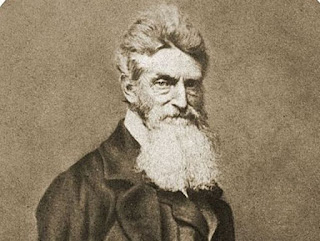I know Peterson is a controversial figure for many, so let me share my particular interest in "the Jordan Peterson phenomenon."
First, as a psychologist who works at the intersection of Christianity and psychology I've had countless people ask me the question, "What do you think about Jordan Peterson?" This series will be a chance to answer that question.
Second, as the author of Hunting Magic Eels, I'm very interested in the project of reconstruction and re-enchantment in a post-Christian world. And this is my specific and particular interest in Jordan Peterson, how he has managed to engage a large audience to both listen to the Bible and appreciate, from a pragmatic angle, the truths of the Christian faith. This engagement is something churches are struggling to match in gaining a hearing for the gospel. So I'm keen to explore Peterson's particular "magic" in the hope of learning some lessons about how evangelism might look in a post-Christian context.
Specifically, I'm talking here about the series of lectures Peterson delivered about "The Psychological Significance of the Biblical Stories." These 15 lectures can be found here. Interestingly, Peterson is not a believer. He approaches the Scripture as a Jungian psychologist. And yet, these fifteen very long and rambling lectures on the Bible were delivered to packed audiences and the videos/podcasts of the lectures have received millions of views and downloads. Which brings me to my question for the coming Fridays: What is the allure, appeal, attraction and fascination with these lectures? This is what I want to explore.
Again, the hope here is to learn lessons about how the church might share the Bible with the modern world. Here's an example. I had a recent conversation with a science department faculty member at my school. He was seeking my advice about a student he was close to. This student was raised in a conservative Christian home with a very literalist way of reading the Bible. Which, obviously, made Scripture conflict with the reigning scientific consensus about things like evolution and cosmology. So when the student came to the university as a science major his faith crashed and burned. And he grew very bitter and angry. As the faculty member shared with me, this student felt that he had been "lied to" by his church.
So the faculty member asked if I had any recommendations about how he might talk with this angry, suspicious student about God and the Bible. And here was my answer: "Have him listen to Jordan Peterson's lectures on the Bible. If anyone can get an angry young man to take the Bible seriously, it's Jordan Peterson."
Which is a really sad situation, if you think about it, pointing a struggling student toward a non-believer rather than to the church. But that's the reality of the situation right now, at least as I see it. My hope for this student is that Peterson would become a gateway drug for Christianity at some later point.
Which brings us to Maps of Meaning.
Published in 1999 before Peterson became famous, Maps of Meaning is Peterson's magnum opus as a theoretical psychologist working within the Jungian tradition. As a dense, academic tome, Maps of Meaning hasn't been read as much as Peterson's more popular books, 12 Rules to Life: An Antidote to Chaos and Beyond Order: 12 More Rules for Life. And yet, the core insights of 12 Rules to Life and Beyond Order are all there and anticipated in Maps of Meaning. And most importantly for our purposes, the Jungian analysis Peterson develops in Maps of Meaning functions as the hermeneutical lens through which he reads the Bible in his popular Bible lectures. Basically, though Peterson's thought has developed since 1999, Maps of Meaning functions as a sort of Rosetta Stone that unlocks Peterson's particular take on the world and his Jungian reading of the Bible. In addition, since Maps of Meaning represents Peterson's academic contribution to psychology, it is the book that holds the most interest for me as a psychologist.
And so, on Fridays in the months ahead we'll be walking through Jordan Peterson's Maps of Meaning. The tour will be eclectic rather than comprehensive, driven by my own interests and my goal in trying to understand what makes Peterson's Jungian reading of the Bible so compelling to modern audiences.


























